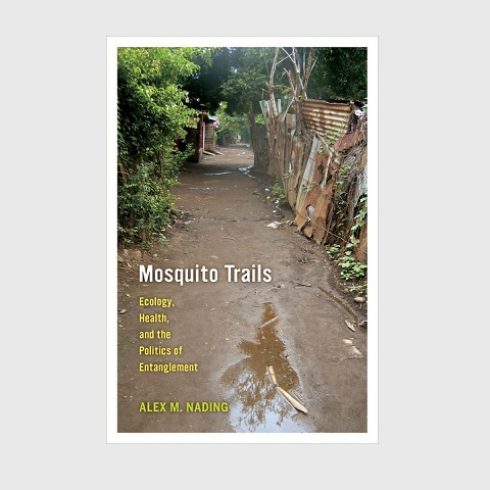Mosquito Trails
Ecology, Health, and the Politics of Entanglement
Alex M. Nading
University of California Press 2014

Abstract
Dengue fever is the world’s most prevalent mosquito-borne illness, but Alex Nading argues that people in dengue-endemic communities do not always view humans and mosquitoes as mortal enemies. Drawing on two years of ethnographic research in urban Nicaragua and challenging current global health approaches to animal-borne illness, Mosquito Trails tells the story of a group of community health workers who struggle to come to terms with dengue epidemics amid poverty, political change, and economic upheaval. Blending theory from medical anthropology, political ecology, and science and technology studies, Nading develops the concept of “the politics of entanglement” to describe how Nicaraguans strive to remain alive to the world around them despite global health strategies that seek to insulate them from their environments. This innovative ethnography illustrates the continued significance of local environmental histories, politics, and household dynamics to the making and unmaking of a global pandemic.
View Publication > Share
Share






Commentary
The latest commentary on the use of antimicrobials in society.
‘Notes from the Field’: Wakiso District, Kampala, Uganda
Antibiotics, poultry, and livelihoods: Conjoined Worlds in Medium-Scale Urban Livestock Keeping.
Submissions to the AMIS Hub
Are you a social scientist who is working in antimicrobial resistance (AMR)?
Welcome to the AMIS Hub!
The story of ‘How do we get patients to stop demanding antibiotics?' to where we are now.